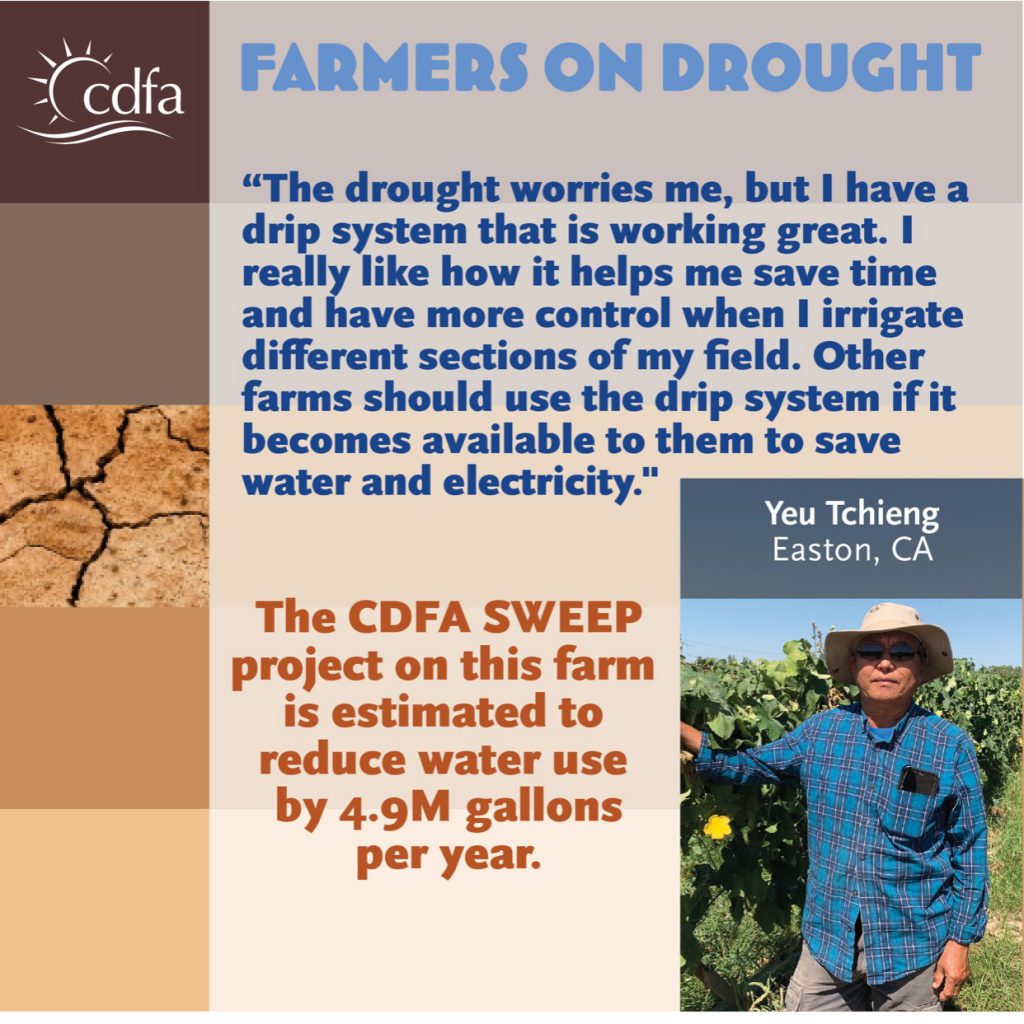About six miles south of Fresno, in the small town of Easton, California, Yeu Tchieng has tended to a farm since 2007, but he’s been farming for a total of more than 50 years – most of his life. Born and raised in the Southeast Asian country of Laos, he farmed the traditional way, which consisted of slashing and burning vegetation away in the forest to clear the ground for his crops. He used no farming technology in Laos and had no access to any synthetic fertilizers or pesticides.
Tchieng wanted to pursue a State Water Efficiency and Enhancement Program (SWEEP) grant in 2018 to be more efficient with his water use and to make his pump more energy efficient. He was also interested in soil moisture sensors, a flow meter, and a data logger to support improved irrigation water management and to measure the amount of water used each season.
Tchieng, who grows Opo Squash, Chinese Eggplant, Luffa, Bitter Melon and Sunchoke, has divided his fields into two sections and waters each using the drip system made possible by his SWEEP grant.
Adapting to Climate-Smart Agricultural Practices
“Other farms should use the drip system if it becomes available to them to save water and electricity,” Tchieng said.
The agricultural technology available in California is new to Tchieng but he’s adapted to using it to his advantage.
Helping Farmers Become Drought Resilient
While he’s seen more than a couple of dry periods in California, the current and ongoing drought has started taking its toll.
“The drought worries me, but I have a drip system that is working great,” Tchieng said. “I really like how it helps me save time and have more control when I irrigate different sections of my field.”
Tchieng said he’d like to see more assistance made available to small farmers, so they can apply for program grants like SWEEP and the Healthy Soils Program, and improve their farms, especially when it comes to water use.
“The drought is very severe right now, and a lot of small farms use flood irrigation since they do not have the financial capability to install drip irrigation, nor the knowledge on how to use it,” he said. “If all small farmers were able to install drip irrigation with financial assistance from CDFA, the drought would not be solved but less water would be used versus flood and furrow irrigation.”
Yeu also received a Healthy Soils grant for composting and planting cover crops, with the assistance of the University of California Cooperative Extension, Fresno Small Farms team. The program is improving soil health while also bolstering the biodiversity present in the soil on Tchieng’s farm. Like SWEEP, the Healthy Soils Program helps Yeu reduce greenhouse gas emissions on his farm.



